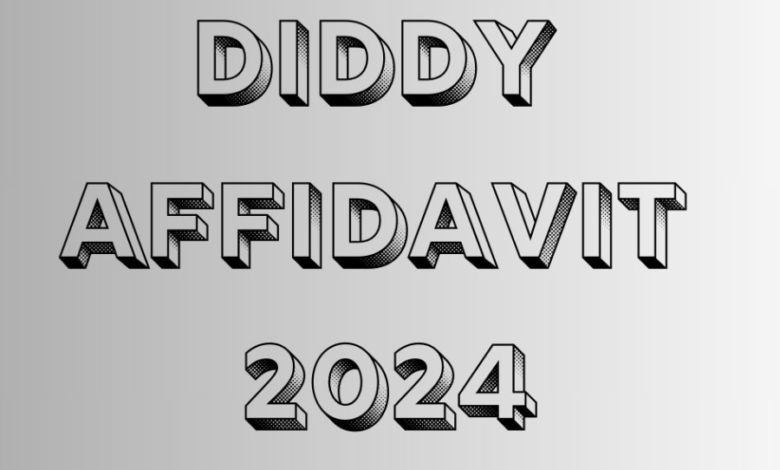Understanding the Diddy Affidavit 2024: An In-Depth Analysis

The Diddy Affidavit 2024 has emerged as a significant development in the realm of legal documentation, reshaping the way affidavits are approached and utilized in legal proceedings. This article provides a comprehensive exploration of its features, implications, and potential impact on legal practices.
What is an Affidavit?
An affidavit is a written statement confirmed by oath or affirmation, used as evidence in court. It allows individuals to assert facts they believe to be true under penalty of perjury. This formalized declaration plays a crucial role in legal settings by providing a structured method for presenting evidence.
Importance of Affidavits in Legal Proceedings
Affidavits are integral to the legal system for several reasons:
- Formal Evidence Presentation: They offer a structured way to present evidence in court, documenting facts that can influence judicial decisions.
- Integrity of Legal Processes: By requiring individuals to swear to the truthfulness of their statements, affidavits help maintain the credibility and integrity of legal processes.
- Evidence Collection: Affidavits facilitate the documentation of observations, experiences, or knowledge relevant to a case, which can be used during trials or hearings.
Ensuring Credibility and Veracity
The credibility of an affidavit is reinforced by the requirement to swear under oath or affirmation. This solemn act underscores the seriousness of the statements made and ensures that individuals are legally bound to the truthfulness of their assertions.
Role in Evidence Collection
Affidavits are pivotal in evidence collection. They enable individuals to record their observations or knowledge about a case, presenting this information formally to be evaluated in legal proceedings. This documentation can be crucial for proving or disproving claims and defenses.
Background and Context
The Diddy Affidavit 2024 represents a significant advancement from previous affidavit practices. Named after its primary architect, this updated version addresses various shortcomings of earlier models while adapting to modern legal requirements. It introduces several new features aimed at improving the affidavit process.
Key Elements and Significance
The Diddy Affidavit 2024 incorporates several key features:
- Enhanced Security Measures: These improvements ensure the protection of sensitive information and prevent unauthorized access.
- Standardized Formatting: A standardized format simplifies the preparation and review process, ensuring consistency across different affidavits.
- Provisions for Electronic Submission: Recognizing the shift towards digital documentation, the Diddy Affidavit 2024 allows for electronic submission, facilitating easier and more efficient handling of affidavits.
These updates collectively aim to enhance the efficiency and reliability of affidavits in legal settings.
Impact on Current Legal Cases
The introduction of the Diddy Affidavit 2024 has already started influencing ongoing legal cases. Courts are increasingly adopting its updated provisions for evidence submission, reflecting a shift towards more streamlined and secure affidavit processes. This transition may impact the speed and efficiency of case resolutions.
Potential Future Applications
Looking ahead, the Diddy Affidavit 2024 could set a precedent for future reforms in affidavit practices. Its introduction may prompt further legislative changes and technological advancements in legal documentation. As legal systems continue to evolve, the principles established by the Diddy Affidavit 2024 may guide future developments.
Case Studies and Examples
Past cases illustrate the impact of affidavits on legal decision-making. For example, affidavits have played a decisive role in cases involving complex financial disputes or personal injury claims. These documents often serve as crucial evidence that can sway judicial decisions, highlighting the importance of accurate and reliable affidavits.
Judicial Interpretations
Judicial interpretations of affidavits can vary based on jurisdictional practices and legal precedents. Understanding these interpretations is essential for legal professionals and individuals involved in legal proceedings. The Diddy Affidavit 2024 may influence these interpretations by introducing new standards and practices.
Steps Involved in Drafting a Valid Affidavit
Drafting an affidavit requires careful attention to detail:
- Statement Accuracy: Ensure that all statements reflect the facts accurately.
- Clarity and Precision: Use clear and precise language to avoid misinterpretations.
- Legal Compliance: Adhere to the requirements set forth by the Diddy Affidavit 2024, including any new formatting or submission guidelines.
Notarization and Witness Requirements
To validate an affidavit, it typically requires notarization by a qualified official or affirmation by witnesses. This process ensures the affiant’s identity and willingness to swear to the statement’s truthfulness. The Diddy Affidavit 2024 maintains these traditional requirements while integrating new features for digital verification.
Analyzing the Content of the Diddy Affidavit 2024
The Diddy Affidavit 2024 introduces significant updates compared to earlier versions. These changes include a revamped format, revised content requirements, and new submission procedures. These updates aim to improve the affidavit’s utility and reliability in legal contexts.
Evaluating Changes and Updates
The changes introduced in the Diddy Affidavit 2024 reflect an effort to address previous deficiencies and adapt to modern needs. Evaluating these changes involves assessing their impact on affidavit practices and identifying potential challenges in implementation. While the updates promise enhanced security and efficiency, they may also introduce new complexities for legal professionals.
Media’s Role in Disseminating Information
Media outlets play a crucial role in informing the public about legal developments, including the Diddy Affidavit 2024. Through news coverage and analysis, media channels shape public perception and understanding of legal changes, influencing how these developments are received by the broader audience.
Public Perception and Opinion
Public reactions to the Diddy Affidavit 2024 vary. Concerns about privacy, transparency, and the reliability of electronically submitted affidavits are common. While some view the updates as progressive and necessary, others express apprehension about potential risks associated with digital documentation.
Legal and Ethical Concerns
The Diddy Affidavit 2024 raises several legal and ethical concerns:
- Privacy Rights: Ensuring the confidentiality of information within affidavits, particularly those submitted electronically, remains a significant challenge.
- Data Security: The implementation of enhanced security measures is crucial to protect sensitive information from unauthorized access or tampering.
- Potential for Misuse: There are concerns about the potential for misuse of affidavits, particularly in a digital format where data breaches could have serious consequences.
Privacy Issues and Confidentiality
Maintaining the confidentiality of affidavit information is paramount, especially in the digital age. The Diddy Affidavit 2024 addresses these concerns by introducing enhanced security protocols. However, ensuring that these measures are effective and that privacy is protected remains an ongoing challenge.
Technological Advancements
Technological advancements may further transform affidavit practices. Future developments could include the integration of blockchain technology for enhanced security and tamper-proof documentation. These innovations could address some of the current concerns about data integrity and confidentiality.
Legislative Developments
Anticipated legislative changes may address current ambiguities in affidavit procedures. As legal standards continue to evolve, lawmakers may introduce new regulations to ensure consistency and adherence to emerging best practices in affidavit documentation.
Conclusion
The Diddy Affidavit 2024 represents a significant advancement in the practice of legal documentation. By introducing enhanced security measures, standardized formatting, and provisions for electronic submission, it aims to improve transparency, efficiency, and reliability in legal proceedings. As its implementation continues, its impact on legal decision-making and procedural norms will become increasingly evident.
FAQs
What is the purpose of the Diddy Affidavit 2024?
The Diddy Affidavit 2024 aims to improve the efficiency and reliability of affidavit submissions in legal proceedings.
How does the Diddy Affidavit differ from previous versions?
It includes updated provisions for enhanced security, standardized formatting, and provisions for electronic submission.
Who can draft a valid affidavit?
Any individual with firsthand knowledge of relevant facts can draft an affidavit, subject to notarization or witness affirmation requirements.
Is the information in an affidavit always considered true?
Affidavits present sworn statements of fact, but their truthfulness is subject to judicial scrutiny and evaluation based on evidence presented.
What should one do if asked to sign an affidavit?
Before signing, ensure you fully understand the statements being made, seek legal advice if necessary, and verify the accuracy of the information provided.
“Explore the latest trends and insights in technology at TechProMagazine.com.”





